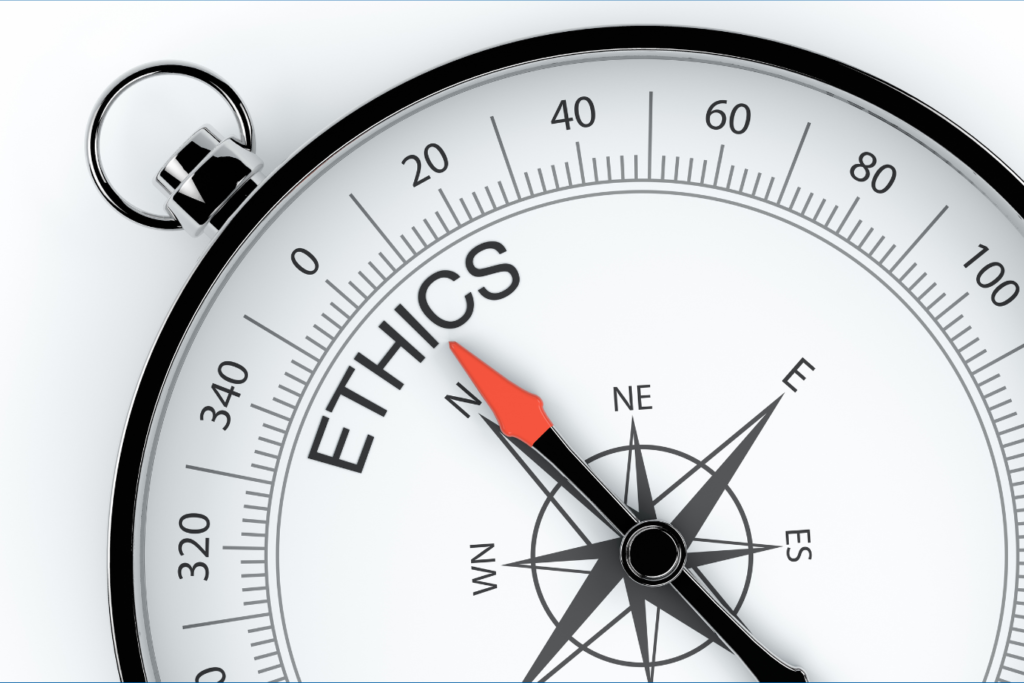
Ethics in the AEC Industry
The political aspect of working within communities as a civil engineer poses new responsibilities to maintain the utmost ethical standards and moral ground to always put the public’s wellbeing first when making decisions.
As a civil engineer and the Director of the Water Department in The City of Highland Park, Damon L. Garrett, PE, has years of experience navigating ethical business practices in the industry. The following interview is part of a four-part series that continues his discussion with Bonnifer Ballard at Michigan’s American Water Works Association (AWWA) conference held on September 15, 2023.
Q: How do you maintain a high moral ground when working with many surrounding people who engage in unethical behaviors?
A: As a licensed professional engineer, maintaining the health, welfare, and safety of the public is my responsibility.
In my current role as President, I have to address any situation that could potentially end up or appear to be unethical. Whether within our company or working with a client, it is my job to address it immediately and minimize any risk, personally, professionally, and for the public.
Sometimes, we have customers who have a strong desire to achieve certain results that align with their business objectives; however, sometimes, that can put them in gray areas. In those situations, I outline the liability associated with their request and how others can be put at risk. I’ve never had a client ask me to move forward after establishing those moral boundaries. Our job as consultants is to provide ethical alternative solutions when these situations occur.
Q: How do you handle morale knowing these practices? Does it ever affect your mentality?
A: Sometimes, it can be discouraging. You see people do things that are unethical or do not align with your morals, which can be extremely frustrating. Whenever I see this occur, it motivates me to do more good and lead by example.
Even though it might be difficult, you have to hold others accountable to that high moral standard. The best thing you can do is be genuine and honest in those situations. I can sleep at night knowing I’ve done the right thing and protected someone who may not know they’re headed down the wrong path.
Even though it might be difficult, you have to hold others accountable to that high moral standard. The best thing you can do is be genuine and honest in those situations.
Damon L. Garrett, PE
Q: How do you navigate morals, ethics, and values in an industry that can be so corrupt?
A: One of the old additives I live by is, “Treat people how you want to be treated.” I don’t want to be yelled at; I don’t want to be taken advantage of. I make sure I’m treating people how I want to be treated, and that includes being honest and trustworthy. Being honest and doing the right thing is how you navigate our industry.
Q: How do you respond when unethical decisions are made in the industry?
It is not always popular, but you have to notify the appropriate party being impacted. There are agencies where disciplinary action is brought against them for doing unethical things in our industry. If someone is going to put a community in harm’s way, you have to raise your hand and say, “That’s not right.”
In our industry, our work affects a lot of people. Although there are a lot of checks and balances, if our work is done incorrectly, it can lead to injuries, sicknesses, or even fatalities for people. If you think something is wrong, you need to raise your hand because it impacts people’s lives.
Q: Where do you see unethical behavior commonly?
A: I usually see unethical behavior when there are high stakes, high dollar situation. When the business opportunity is substantial, the more people are willing to do what it takes to get their way. We’ve seen this a lot through our practice in the municipal world and some elected officials or people who are high-ranking or have government status. You find it can become “by any means necessary” as they think about their votes and constituents more than they think about the outcomes.
Q: Are you surprised by the unethical behavior you see in any way?
A: The older I get and the more I see, the less surprised I am about what people are willing to do. There is some litigation we’re involved in, and the things people are doing, the arguments they’re making to support their cause are pretty alarming. Especially when you look at the people at the highest level in a leadership position only worrying about themselves. It is counterintuitive. You don’t get to the top to serve yourself; you get to the top to serve everybody else.
When people worship the almighty dollar, they have a lower moral compass and do things that may surprise you. Bad things can happen to you and others when you chase the dollar like that. You have to have a standard of what you’re willing to do and what you’re not willing to do.
Q: What is the greatest lesson you’ve learned regarding ethics in the AEC industry?
A: The greatest lesson I’ve learned is always do what is right. No matter what.
As professional engineers, we design and complete projects that communities use every day. That is an incredibly high standard. It is important to continue having discussions about enhancing ethics to guarantee we are protecting the greater good. Progressing industry ethics forward will only result in safer, healthier, and more prosperous communities.
View all posts in this four-part series:

Stay connected!
Subscribe to News + Ideas

